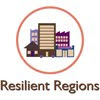On the heels of a disaster recovery workshop in Galveston,TX, a delayed flight had me revisiting some of the comments made during the event, one of which stood out in particular. The session topic was "Hurdles to Recovery" and although there were many valid points about the need for a streamlined federal funding process and the need for better regional coordination, there was one thought that added great clarity to the discussion: disasters take existing problems in a community and make them a whole lot worse.

When discussing issues like poverty, crime and unemployment, these are trends that tend to have a relatively predictable trajectory unless influenced by an outside force (say a plant closing or a natural disaster). As we've seen already in the BP Gulf oil disaster, spoiled fishing grounds have caused a ripple effect in industries related to tourism and seafood that has sparked a dramatic increase in unemployment and psychological distress. Less than five years removed from Katrina, with some coastal communities already faced with high unemployment and poverty rates, the spill couldn't have come at a worse time.
As strategies for recovery unfold following a disaster, it becomes necessary to balance competing priorities in a way that's fair and equitable. When bridges are crumbling, repairing physical infrastructure tends to trump a community's desire to retrofit government buildings with Energy Star-rated appliances... that's a fact. But what happens when bridges are crumbling, the tax base is eroding under the weight of shuttered businesses and workers are finding themselves without a place to live because they can no longer pay the mortgage? Oftentimes there will be federal or state government financial aid (or BP payouts in the case of the Gulf), but beyond that, disaster-impacted cities and towns are the ones responsible for building back their own communities.
Chances are, most members of a community will stick around for the rebuilding process following a disaster. Whether it is due to pride or merely a sense of family roots that keeps people tethered, the reasons vary. But, much like the City of New York following September 11, when adversity is at its highest (especially in America) communities tend to band together for the sake of building back stronger than they were before. This leads me to believe that, although disaster's may exacerbate issues faced by a community, nothing motivates people more perhaps, than being put in a position to prove their mettle.





No comments:
Post a Comment